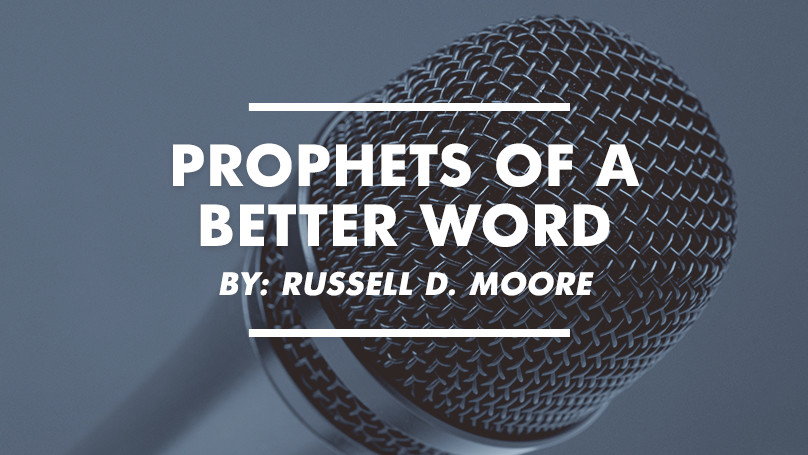The Bible tells us that the king of Israel once wanted to hear from the prophets, as to whether he would be victorious over his enemies. All the court prophets told him exactly what he wanted to hear. Yet the king of Judah, wisely, asked whether there might be another voice to hear from, and Israel’s king said that, yes, there was, but that he hated this prophet “because he never prophesies good concerning me” (1 Kings 22:8). Once found, this prophet refused to speak the consensus word the king wanted to hear. “As the Lord lives, what the Lord says to me, that I will speak” (1 Kings 22:14). And, as it turned out, it was a hard word. It seems to me that the church faces a similar situation as we look to the future of marriage in this country. Since the Supreme Court’s ruling in Obergefell vs Hodges that declared a constitutional right to same-sex marriage, some evangelicals are now asking what the point is in further resisting this cultural and legal movement. Fearing being left behind on the “wrong side of history,” we hear some evangelical pastors and leaders calling for the church to either capitulate its doctrine or simply stop making the Bible’s teaching on sexuality and marriage such a big deal. But either of these options would be infidelity to the gospel we’ve received. First of all, no one refusing to repent of sin—be it homosexuality or fornication or anything else—will inherit the kingdom of God (1 Cor. 6:9-10). This strategy leaves people in condemnation before the Judgment Seat of Christ, without reconciliation and without hope.
First of all, no one refusing to repent of sin—be it homosexuality or fornication or anything else—will inherit the kingdom of God (1 Cor. 6:9-10).
Second, it doesn’t even work. Look at the empty cathedrals of the Episcopal Church, the vacated pews of the Presbyterian Church (USA), and right down the line. Let me be clear. Even if embracing same-sex marriage—or any other endorsement of what the Bible calls sexual immorality—“worked” in church-building, we still wouldn’t do it. If we have to choose between Jesus and Millennials, we choose Jesus. But history has shown us that those who say they want an almost gospel don’t really want the gospel at all. There will always be those who want prophets to assure them that they can have Jesus without repentance, or with a selective kind of repentance. These prophets don’t speak for God. Frankly, we must acknowledge that for too long too many of us have tolerated a cheap and easy false gospel for the gospel of Jesus Christ. Too many have been called gospel preachers who preach decision without faith, regeneration without repentance, justification without lordship, deliverance by walking an aisle but without carrying a cross. That gospel is different from the one Jesus and his apostles delivered to us. That gospel doesn’t save.
But history has shown us that those who say they want an almost gospel don’t really want the gospel at all.
The Sexual Revolution cannot and will not keep its promises. We as the people of God must prepare to receive the refugees who will come into our churches and our lives, broken and betrayed by the promise of freedom and joy outside of Christ. We must hold out a gospel word of repentance AND reconciliation, of justice AND mercy, of atonement AND cleansing. To preach a gospel of only judgment or of only peace is to preach a false gospel. We need the gospel that calls sin what it is in order that we may call grace what it is.
We must hold out a gospel word of repentance AND reconciliation, of justice AND mercy, of atonement AND cleansing.
In a culture that calls on its prophets to only speak pleasant, easy words to it, we must remain faithful to our mandate to speak, as the prophet in 1 Kings said, what the Lord says to us. And what the Lord has said to us is an eternally better word than the word our world is asking from us right now.
Published November 19, 2015
